Table of Contents
Arguably the most important aspect of business growth is client acquisition and retention. However, organizing a cohesive, systematic outreach effort can be difficult. As a business owner, you're likely pulled in a hundred different directions, so how can you guide leads and stay in touch with past clients at the same time?
That's where a customer relationship management (CRM) tool can come in handy. CRMs make it easy to maintain consistent and intentional interactions and meet your bottom line. Despite the name, CRMs can also help you manage much more than your client contacts.
In this article, we’ll explain how CRMs work. Then we'll cover four ways using a CRM can improve your small business. Let’s get to it!
An Introduction to CRMs
As the name suggests, CRM software helps you manage your customer relationships. Typically it does this by tracking customer information and communication across platforms. This includes (but is not limited to):
- Contact information
- A record of each customer in the marketing funnel
- Customer support history
However, a CRM doesn't just track and organize leads. More sophisticated tools can keep tabs on your sales team, business partners, and more. HubSpot offers a free CRM, and is one of the most powerful options:
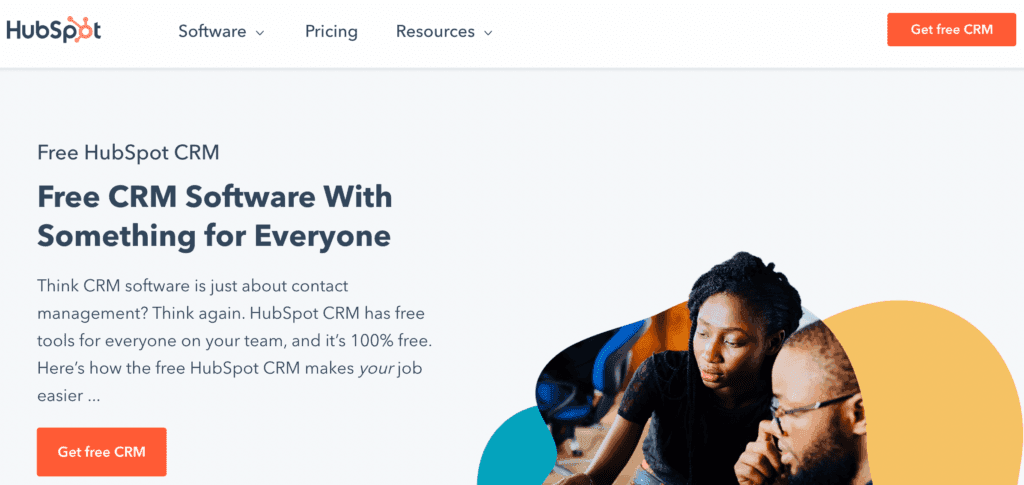
Additionally, a quality CRM can help you strategize to fill in the gaps in your business model. For instance, it can help you identify customer trends and quickly respond to pain points.
The goal of any CRM is to optimize customer engagement and improve your bottom line. If you aren't leveraging a CRM to support your business workflows, you're likely missing out on additional profits.
4 Ways a CRM Can Improve Your Small Business
Now that you know how a CRM works and why you should use one, you probably want a few more details. Let's cover four specific ways a CRM can enhance your business.
1. Streamline Your Sales Interactions
When you're a small business owner, you're likely running a compact team and a tight ship. With minimal staff and resources, this may mean that potential customers (or even repeat buyers) more easily slip through the cracks in your sales funnel.
A CRM can take care of your sales process from lead generation to conversion. From providing email sign-up templates to accounting support, it can consolidate all of your customer management needs into one place.
With a CRM, you can typically enjoy full visibility into your sales pipeline via a user-friendly dashboard:
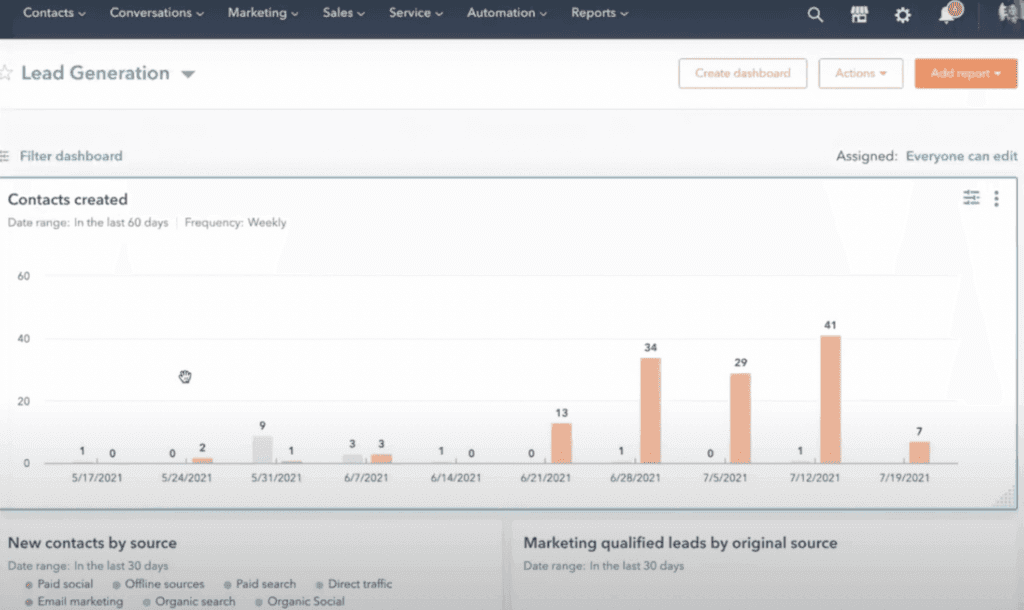
Optimizing your sales flow can help improve your online reputation, the overall user experience (UX) you offer, and your sales. Furthermore, many CRMs prioritize customer interaction based on strategic intervals and customer readiness to buy. These targeted marketing efforts are typically more effective.
2. Maximize Your Email Campaigns
Another way a CRM can improve your online business is by helping you establish a successful email marketing campaign. This may include promotional emails, order confirmation emails, status updates, and more.
While some entrepreneurs underestimate the power of email, the statistics don't lie. With global email marketing revenue in 2022 projected to reach nearly $10 billion, you'd be wise to avoid neglecting this channel.
Via email segmentation, a CRM can reach customers at just the right moment:
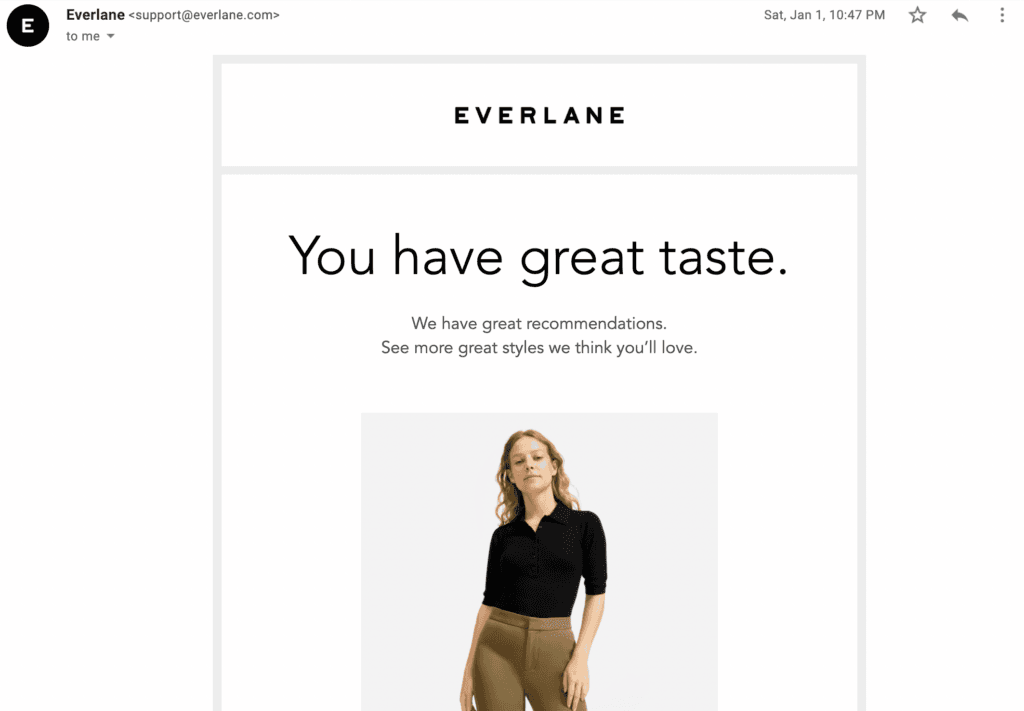
With nuanced monitoring, they can even help prevent your emails from getting stuck in spam. What's more, CRMs typically use email automation to maximize their effectiveness. That way, you can go above and beyond the standard confirmation emails by sending customized product recommendations, thank you emails, and more.
3. Track Your Affiliate Marketing Efforts
Leveraging affiliate marketing is likely to benefit any small ecommerce business. A successful affiliate program can help you capture new leads and drive traffic to your site with little investment.
That's because affiliates do the marketing for you, gaining a commission only when they convert customers or leads. However, in order to see results, you'll probably need a complex system and a decent amount of affiliates to advertise your products.

The good news is, you can use affiliate management software such as Easy Affiliate to track your affiliate links, monitor your conversions, and process commissions.
Easy Affiliate integrates with GetResponse, an all-in-one marketing software that doubles as a CRM. By using these tools in tandem, you can increase your conversions and establish a passive income.
4. Improve Your Customer Service Processes
Few things are more important than the buyer journey. A key part of this experience is customer service.
In the digital age, consumers don't want to feel like just another number – or worse, talk circles around a chatbot. Fortunately, lots of CRMs integrate with useful customer service software:
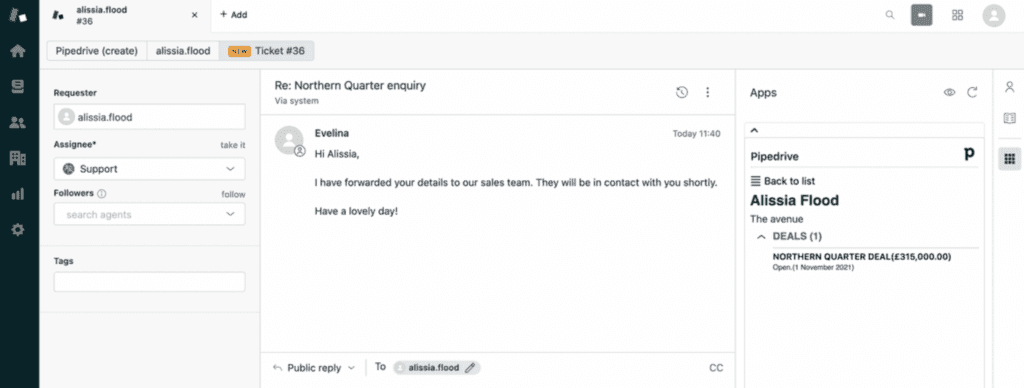
For example, the Pipedrive CRM integrates with the Zendesk customer support platform. This seamless synchronization allows you to align your sales and support efforts.
By merging all customer interactions and using a tagging system, you can more efficiently manage your customer support tickets and win more sales. With Pipedrive, you can even assign specific team members to customer cases, so that the most knowledgeable person handles each unique issue.
How to Choose a CRM
There are plenty of dependable CRMs out there. So you might be wondering how to decide between so many options. When looking for the perfect CRM for your business, there are a few important factors to consider.
First, you'll want to get a sense of your budget and the scope of your needs. Some CRMs are quite expansive, offering hundreds of integrations or in-house tools. Others will have a particular component that makes them stand out.
For example, Gleam's CRM focuses on customer retention as well as growth. It also allows you to easily create a rewards system for your customers. Therefore, if you'd like to create a loyalty program, it may be a good choice for you.
You might also want to check on a CRM's compatibility with your pre-existing software and WordPress plugins. Conducting an audit of your current systems is a great way to get a sense of what you're lacking and what you have enough of. At the same time, you can cross-reference any integration lists as you're shopping for your new CRM.
Finally, once you choose the best CRM for your needs, you'll want to make sure you select the most appropriate plan. If you're running a small ecommerce company, you probably won't require a larger plan. In fact, it's best to start small, and scale up over time in line with your needs and budget.
Conclusion
Coordinating sales and marketing efforts can easily become time-consuming and disorganized. This can eat into your profit margin and stunt your company’s growth. Rather than juggling multiple tasks across various platforms, you can offload these processes to a CRM.
To recap, here are four ways using a CRM can improve your small business. It can:
- Streamline sales interactions.
- Automate email marketing campaigns.
- Track affiliate marketing.
- Improve customer service.
What do you think is the most compelling benefit of a CRM? Let us know in the comments section below!
If you liked this article, follow us on Twitter, Facebook, Pinterest, and LinkedIn. And don't forget to subscribe to our newsletter

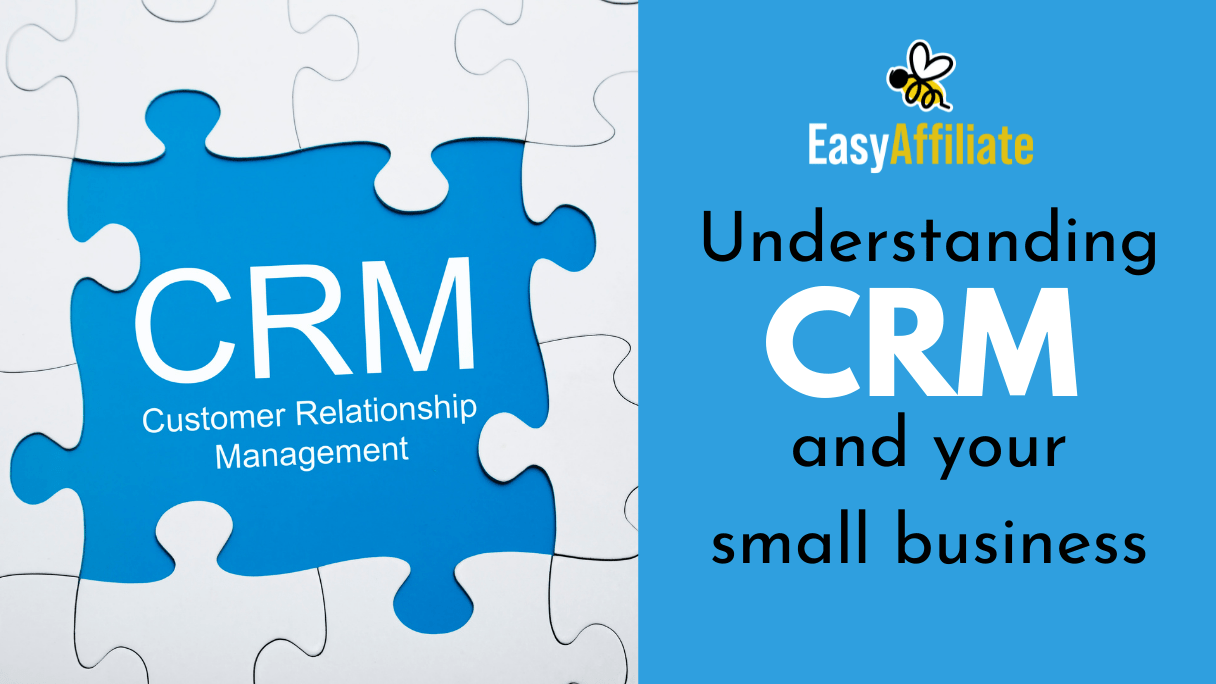

Leave a Reply